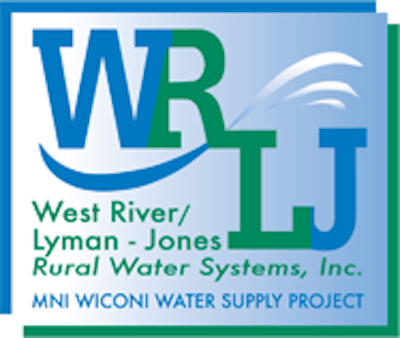About Us
WR/LJ is one of four sponsor systems included in the Mni Wiconi Water Supply Project. The Mni Wiconi Rural Water Supply Project was authorized by Public Law 100-516 on October 24, 1988...About Us...
Payment Options
Looking for the most convenient way to pay your bill? You're in luck! We offer a wide variety of payment options to our customers. Simply choose the option that best suits your needs...Payment Options...
Conservation Tips
There are a number of easy ways to save water, and they all start with you. We have several tips listed to help conserve water. When you save water, you save money on your utility bills. Here are just a few ways...Conservation Tips


